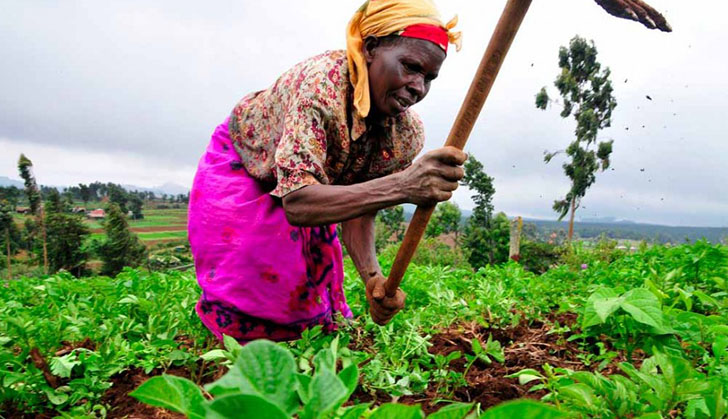
INTERNECINE conflicts over land use between mining and agriculture are hampering efforts to enhance gender justice and social inclusion in land and natural resources management in relation to women.
BY BYRON MUTINGWENDE

This came out at a recent dialogue meeting organised by Women and Land in Zimbabwe (WLZ) with support from Norwegian People’s Aid and Oxfam held in Harare.
“Many of us have our farming activities disrupted when people in possession of mining claims come and tell us that they are the new owners and start their mining operations on our farms,” Nokuthula Ndlovu, a woman farmer from Bubi in Matebeleland South province said.
Women in agriculture lamented that it appeared mining rights take precedent over farming, as interpreted by those in government, and they said the development was taking a toll on their livelihoods.
However, Thammary Vhiriri, the deputy legal advisor in the Mines and Mining Development ministry said the problems will be addressed if the government adopts the amended Mines and Minerals Act her ministry was spearheading.
“Provisions under section 31 of the Mines and Minerals Act provide parameters within which mining activities should take place, which include the distance from a borehole or a homestead.
“However, it seems most miners, particularly artisanal and small scale miners, do not respect these provisions since most of them are not registered and formalised,” she said.
- Chamisa under fire over US$120K donation
- Mavhunga puts DeMbare into Chibuku quarterfinals
- Pension funds bet on Cabora Bassa oilfields
- Councils defy govt fire tender directive
Keep Reading
Vhiriri said, according to the Mines and Minerals Act, miners do not need to seek consent of farmers owning land in excess of 100 hectares for them to start their operations, but should do so in instances where the farms are smaller than the stipulated size.
“As a ministry, we have received complaints from farmers that miners are only shown the claims and not consulted by miners, who go on to do their operations without their consent. However, most of our investigations have shown that the farmers would have agreed to have the mining operations proceed and change heart when they realise the miners would be making huge profits,” she said.
An agronomist with the Department of Agricultural Extension Services, Sibongile Mangena, said there was need for a holistic approach in harmonising the mutual operations of artisanal and small scale miners and farmers, particularly in rural areas.
“If artisanal and small scale miners begin operations on large farms (more than 100 ha) practising cattle ranching, for example, without consulting the farmers as the law specifies, there may be problems in the near future.
“It will be necessary to ensure that the miners would have acquired prior training on proper use and disposal of dangerous chemicals like cyanide and mercury that are harmful to livestock and human beings and on other proper mining methods upholding health and safety,” she said.
Mangena gave a case study of a farmer from Shurugwi, who was affected by the law after mining operations began on his farm when he was contracted by the Cotton Company of Zimbabwe to grow cotton on a large scale and had been given inputs and funding.
It also emerged that it was not only women farmers who faced challenges when it comes to deriving benefits from natural resources including land, but female miners were equally affected.
The Women Alliance of Business Associations in Zimbabwe (WABAZ) recently outlined a number of challenges that women miners face.
In a recent report WABAZ said policy inconsistency and unpredictability was affecting the operations of women miners.
“The mining industry in Zimbabwe is saddled with archaic laws and policy inconsistencies that disrupt miners’ operations. For example, miners pay $100 to the Mining and Mining Development ministry for annual inspection fees, while at the same time paying the rural district councils for land use. This lack of policy co-ordination is short changing the miners,” the report noted.
WABAZ said the double pegging of claims by the ministry was causing despondency in the mining sector, particularly for women miners.
“One may have legitimate registration papers from the Mines ministry and be operational for many years on a mine. However, if the mine gets lucrative, someone (usually politically connected) can come claiming the mine is theirs, and produce ‘valid’ papers from the ministry proving it. Therefore, there is uncertainty and insecurity as one’s mine can be seized any time. It is the government’s obligation to protect the interest of women miners by improving policies and laws in order to promote the participation of women in the sector,” the report further said.
The farmers urged the government to speed up the process of realignment of the laws to the provisions of the constitution. They wanted the new mineral policy to incorporate legal provisions that guide the mining sector such as the Zinwa Act Chapter 20.25, EMA Act Chapter 20:27, Urban Councils Act Chapter 29:15 and Rural District Councils Act chapter 29:13 to be aligned before issuance of mining licenses.
Most mining companies started mining operations without carrying out environmental impact assessments because mining laws are not in tandem with environmental and other regulatory frameworks governing the mining sector.











